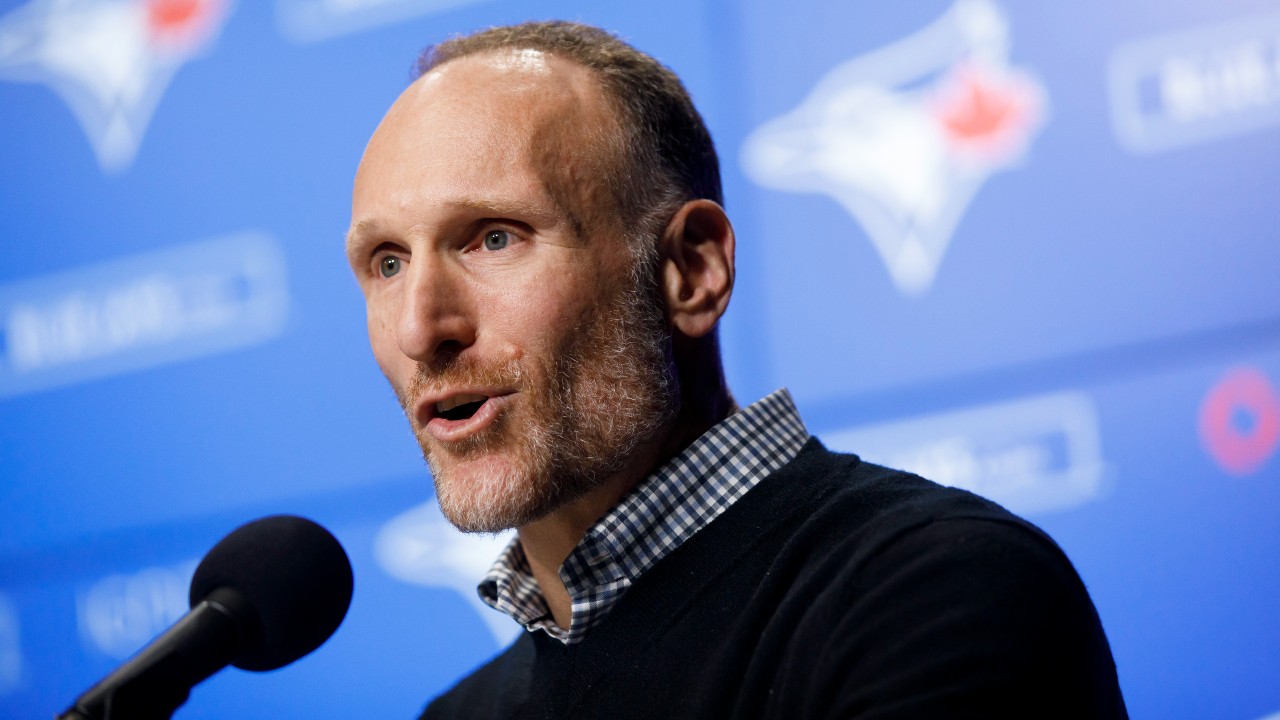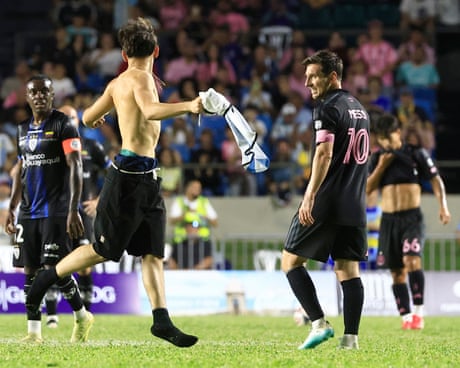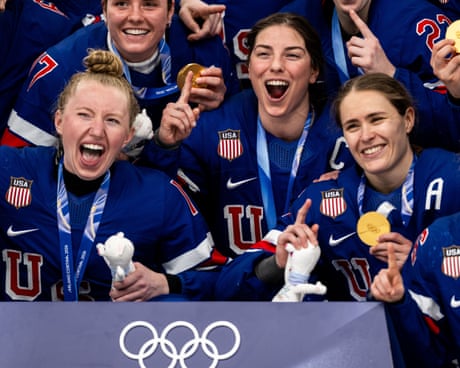
DUNEDIN, Fla. – An asymmetrical outfield with varying wall heights is more a by-product of the Rogers Centre’s renovation than a goal, a necessity to pull bullpens from the bowels of the dome and convert them into a feature, one both fans and the relievers in them can enjoy.
Whether the Toronto Blue Jays inadvertently turned the place into a homer-happy bandbox to accommodate those changes is an open question, although president and CEO Mark Shapiro insisted Wednesday that “it’s going to play relatively neutral in run scoring.”
“That doesn’t mean it’s going to play identical – it will not play identical to a perfectly symmetrical semi-circle fence with no character,” Shapiro said during a wide-ranging 45-minute conversation with media. “It will create nuance, which I’m excited about, and it will create some uncertainty. … That, to me, is one of the exciting things heading into the year. There will definitely be more doubles. It will be interesting to what see some of the angles that are created does for balls in play.”
The new dimensions do indeed add an intriguing early-season wrinkle in what’s already a major transitional period with the implementation of a pitch clock, a ban on infield shifts and a switch to bigger bases.
After a 10-game road trip to begin the season, the Blue Jays will have an off-day April 10 before the April 11 home opener against the Detroit Tigers, meaning there’ll be little to no true sense of how the new wall will impact offence.
On the surface, a power alley brought to 359 feet from 375 feet in right-centre and 368 feet from 375 feet in left-centre, even with wall heights stretched between 11 feet two inches to 14 feet four inches from the previous standard 10 feet, seems destined to torment pitchers.
The outfield is shallower everywhere but down the lines, where the 328 feet distance remains unchanged although wall heights are elevated, and to straightaway centre, which is still 400 feet.
So maybe there’s enough take in some areas to compensate for the give in other spots, and based on the studies done by the club’s research and development staff, the fence “models as neutral,” said Shapiro. “What does that mean? I’m not 100 per cent sure. None of us are.”
What the Blue Jays’ baseball operations department was more certain of during the planning stages is that it didn’t want a dramatic feature like a Yankee-Stadium-esque short porch, believing a more neutral outfield is better for long-term planning.
Still, Brandon Belt said he hadn’t heard about the dimensions when signed as a free agent, but once he did, “that was welcome news, for sure.”
A second phase of the renovation covering the lower bowl is on tap for next off-season, although it wouldn’t be easy to tweak the dimensions. But if the dome becomes homer happy, Shapiro said, “I don’t ever view anything to be impossible to reconsider.”
“If there’s some unintended consequence, an outcome that’s extreme, we’ll either say we’re good to live with that, we like having an extreme ballpark attribute, but I will tell you heading into it, we do not think we’ve created an extreme ballpark attribute,” he added. “We still expect our ballpark to play relatively neutral.”
Some other highlights from his conversation with media:
• A member of the 10-person competition committee that put together the rule changes, Shapiro noted how the dome’s renovation dovetails with research indicating balls off the wall is among the types of action fans want more of. “They want to see more athleticism back in the game and in some ways we’re looking to take the game back to two hour and 20-minute games where pitchers are pitching to contact and there are balls in play, which means you’re seeing the defence showcased and it’s not just balls hit into the shift, you’ve gotten to see athletic middle infielders that show range,” he said. “We’re not necessarily forging ahead in a lot of ways. We’re taking the game back to what the game was in the 70’s and 60’s. … I am not being critical of analytics or data, that absolutely just it is what it is, that’s the evolution of front offices and the evolution of information impacting decision making, game planning, player deployment. But we’ve got to have some rules counter some of that unintended negative impact on the game that’s transpired because of those changes.”
• Speeding up games, highlighting athleticism and increasing the amount of action on the field is essential to expanding the sport’s current fanbase – “if you’re not growing, you’re dying,” said Shapiro – and in Toronto, “there are multiple opportunities. Hopefully what we’re doing in the outfield is going to be one opportunity, which is some of the younger people living downtown that are within walking distance that come to our games but probably don’t come regularly. Creating spaces that will have the coolest patio in Toronto, will have some of the greatest vantage points of any bar in Toronto, certainly among the most unique, creating some new dynamic family opportunities and spaces that maybe some fans who have come occasionally to come more frequently. But when you think about where is the opportunity in the landscape of the city? Where is the growth of the city? It’s new Canadians, it’s new citizens. That’s something that we need to probably think about where there might be opportunity.”
• With an attendance of 2,653,830 last season in their first normal season at home since the pandemic hit, the Blue Jays ranked seventh in the majors, sandwiched between the Houston Astros and Boston Red Sox. The lockout negated all off-season sales last year and back to normal this winter, “we’ve had an increase in sales, but not to the magnitude that we would hope and I think under any normal circumstances would come,” said Shapiro. “We’re optimistic and pretty confident that’s going to come. But there’s a little more pressure on single game sales than you’d like running one of these businesses.” Among the dynamics still at play is downtown offices still not at full capacity, but “in a city of our size, we don’t necessarily need to have it returned to exactly what it was. I think the combination of a more normal off-season, the momentum and a really, really good team and more people downtown and a little more distance between COVID, if you take all those things together, are pointing in a positive direction.”
• So much of the conversation around the Blue Jays early in the spring has revolved around attention to detail, focus on the little things and maturity. What does the latter piece mean to Shapiro? “Maturity I guess means experience,” he replied. “You’ve got a group of players, whether it was in Dunedin or New Hampshire, that have experienced a lot together. And regardless of how good you are at developing players or how good you are at coaching players, you cannot ever prepare them for what it feels like to be in an October environment. You can do a couple of things. You can bring in guys like George Springer and Brandon Belt who have not only been on that stage, but thrive on that stage. You can also have your young, talented core players gain another set of experiences, including bitter disappointment and know what that feels like. … And it feels like there’s a sense of purpose that has emerged from that. To me maturity is just another way of saying that these guys are approaching each day down here with a sense of purpose, and they’re heading into the season with a purpose as well.”
• The Blue Jays remain “in market” for a jersey patch sponsor, although Shapiro didn’t disclose any timeline for completing a deal. One doesn’t have to get done for opening day, as “in theory we could add it during the season.”
• A return to Montreal for a pair of pre-season finales doesn’t seem to be on the docket in coming years, Shapiro saying “the last time we revisited that, there wasn’t a lot of appetite.” The last visit was set for the spring of 2020 after a fall 2019 deal for two games against the New York Yankees, but “COVID just interrupted the timing and it just hasn’t been revisited since.” The first two-game exhibition in 2014 against the Mets drew 96,350 fans but only 47,030 took in the Blue Jays and Brewers in 2019.








